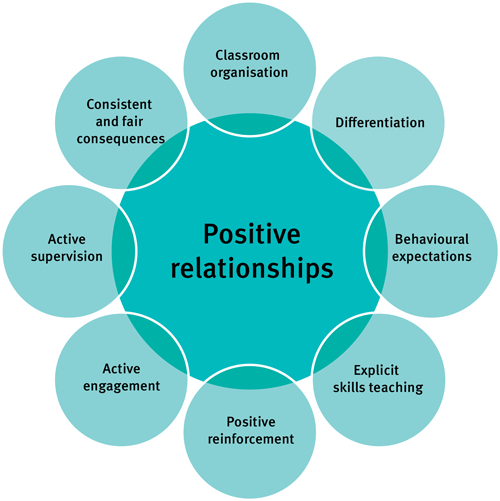Effective classroom management
Positive Behaviour for Learning (PBL) provides the framework for a whole-school, evidence-based approach to behaviour support. PBL takes an instructional approach to behaviour, recognising that schools need to teach the behaviours needed for success at school and beyond. School-wide PBL provides the foundations for the implementation of effective classroom management, which can be described as the consistent implementation of proactive, research-informed practices for classroom management.
Effective classroom management comprises everything teachers do to establish and maintain a positive, safe and productive classroom environment where all students can be successful. Ideally, effective classroom management is integrated within a multi-tiered system of behaviour support like PBL.
Infographic which says "positive relationships", with the following phrases around it:
- Classroom organisation
- Differentiation
- Behavioural expectations
- Explicit skills teaching
- Positive reinforcement
- Active engagement
- Active supervision
- Consistent and fair consequences

The
Classroom Management Hub provides classroom teachers with an overview of practices that have been shown to impact positively on student learning, wellbeing and behaviour. These predominantly proactive strategies can assist teachers to increase the time available for instruction and decrease the amount of time spent responding to behaviour that interferes with teaching and learning in the classroom.